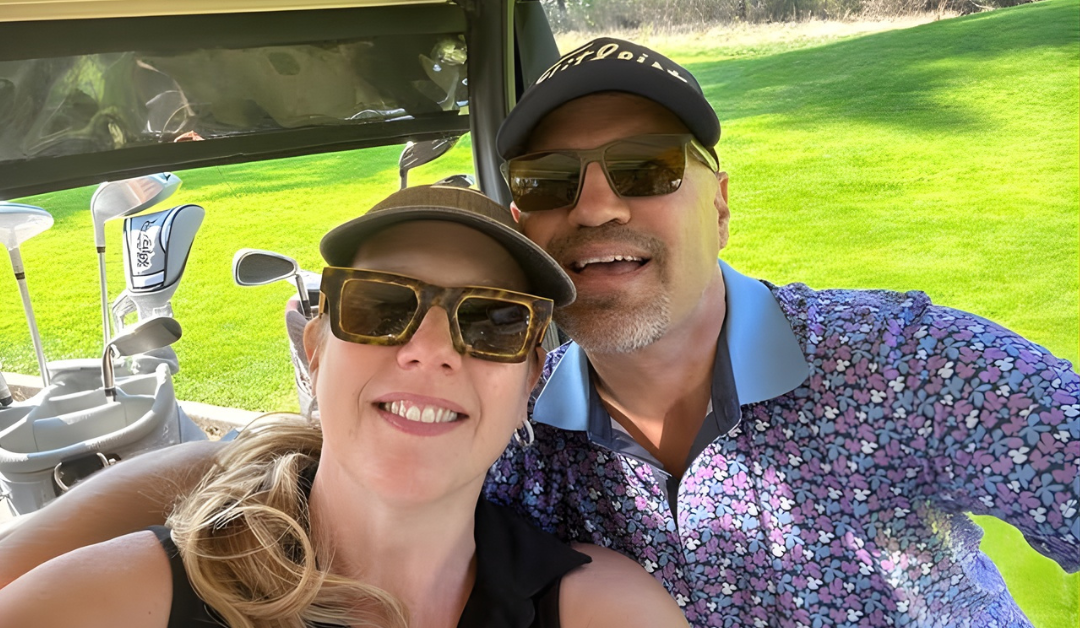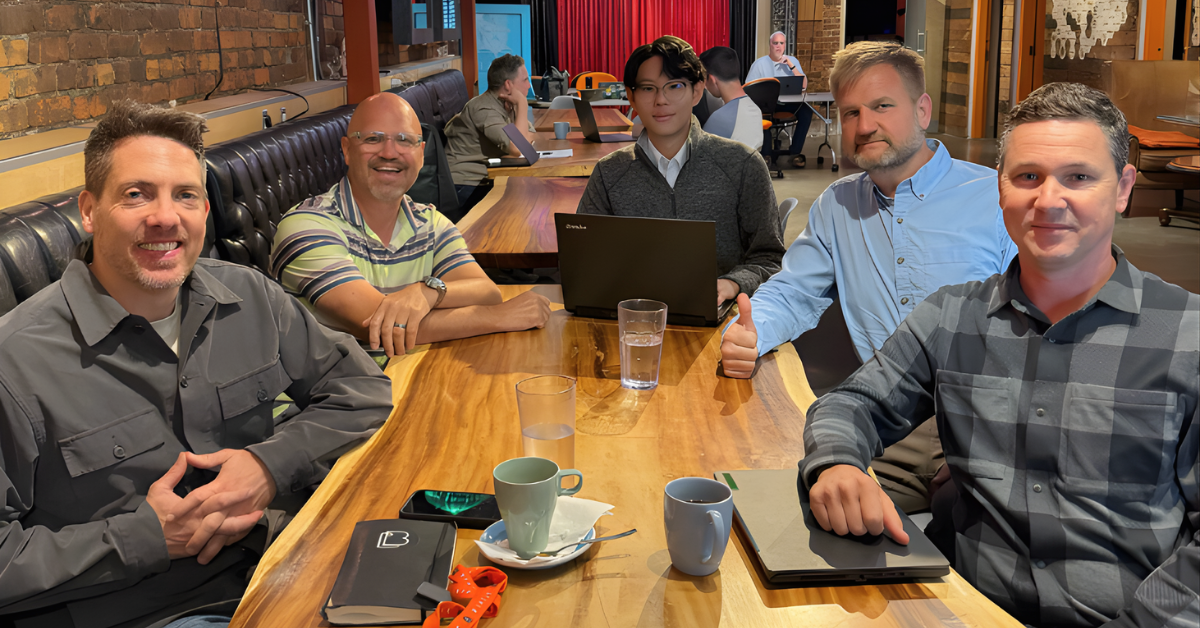Lessons from Darrel & Carmen Degelman’s Journey: Building Modern, Tech-Enabled Businesses
.png)
At SureSwift Capital, we’ve always had a soft spot for entrepreneurs who aren’t afraid to roll up their sleeves and make things happen. Our recent chat with Darrel Degelman was exactly that kind of story. He and his wife Carmen have acquired, modernized, and sold businesses in industries most of us barely think about, and proved that with the right mix of grit, smarts, and a little tech, you can turn “ordinary” into “extraordinary.”
Their story also captures why we’re evolving our focus. We’ve spent years growing and operating SaaS businesses, but the next big opportunity goes beyond software. It’s about using technology to strengthen the companies that keep our communities running.
Darrel and Carmen recognized that opportunity early and saw how tech could open new doors. Today, we’re taking a closer look at their journey and what it’s taught them along the way.
Table of Contents
- From banking to business ownership
- Turning Chores Cleaning into a growth story
- Heating up the market with Heat Savers
- Inside the deal: Lessons from buying and building businesses
- A new chapter with SureSwift
- What’s next for tech-enabled investing
From banking to business ownership

Darrel and Carmen’s entrepreneurial story doesn’t start in a garage with a startup idea, it starts in a bank. They first met at CIBC while both working in wealth management until Carmen took a step back to grow their family and raise their two boys. Darrel stayed in banking but had switched over to TD Wealth Management where he spent his days helping clients manage their money. But at the same time, he couldn’t shake the itch to own something himself.
That “something” turned out to be a family business. Darrel, his dad, and brother had built a few self-storage facilities together. When his dad was ready to retire, Darrel and Carmen helped him step back and took over by buying in at market value. It wasn’t exactly glamorous — 38,000 square feet of storage, later expanded by another 4,000 — but it was his.
While raising their kids, Carmen took charge of running the self-storage business, and Darrel stayed at the bank, juggling finance by day and business ownership with Carmen by night. Twenty years later, in April 2020, just as COVID lockdowns began, they sold the business to Storage Vault, one of the biggest players in the industry.
For Darrel and Carmen it was the first big taste of the whole cycle: buying, running, and exiting a company. It was a reminder that you don’t need something flashy to create real value. Sometimes, steady growth and a clean exit are just as exciting as the big startup stories.
Turning Chores Cleaning into a growth story
In 2009, Darrel and Carmen took on their next adventure purchasing Chores Cleaning, a small cleaning company in Calgary. They ran this in parallel with the self storage business. At the time, it had six employees and looked like any other mom-and-pop operation. But they saw something others didn’t, a business that could scale with some added structure.
They introduced systems that were ahead of their time, building their own scheduling tool that pulled everything together: payroll, safety checks, compliance, and scheduling in one cloud-based system employees could access from their phones. Suddenly, the company could handle growth without drowning in confusion.
Of course, tech alone doesn’t solve everything. The hardest part was people. Hiring, firing, training, and making sure quality stayed high, that was the daily grind. They also spent a lot of time with home builders, forming the relationships that fueled the business’s growth.
By the time they sold in 2013, the team had grown to more than 70 employees. Profit margins stayed steady, sales volume skyrocketed, and the result was a 14x return in just four years, including salary and dividends. The takeaway: growth doesn’t always come from bigger margins, sometimes scale is the real multiplier.
Heating up the market with Heat Savers
The next chapter for Darrel and Carmen unfolded in Victoria. They first took a swing at running a bakery that supplied restaurants and grocers. It wasn’t the right fit long-term, but it wasn’t a failure either. They exited after a year with a 35% return, having modernizing the order, client management, and inventory system while growing revenue through stronger local relationships. From there, they moved on to something more aligned with their skills: Heat Savers, a fireplace and HVAC company.
Their first move at Heat Savers wasn’t easy. They replaced the general manager to get a clear view of costs and operations. With that clarity, they began reworking the business, starting with a new sales compensation structure that increased their upside and reworded growth. They brought in Acuity Scheduling for online service bookings and payments, and implemented Jobber (a cloud based SaaS tool) across the company to streamline client interactions. Every client file now included photos and job history, so customers never had to repeat their story. Jobber also made it easy for clients to accept quotes and pay deposits, day or night.
All these changes pushed the company toward Darrel and Carmen’s guiding mantra: make it easy to do business with us from the customer’s perspective. This doubled the company’s revenue even while running with fewer people.
That chapter drove home another big lesson for Darrel and Carmen: fit matters. The bakery was profitable, but it wasn’t the right business for him. Heat Savers, on the other hand, gave them space to apply their playbook and create real value.
Inside the deal: Lessons from buying and building businesses
Darrel and Carmen’s path hasn’t just been about running companies, it’s been about choosing them. Over the years, they’ve looked at hundreds of potential acquisitions, often making unsolicited offers. And they’ve walked away plenty of times. Some businesses weren’t ready, some had shaky numbers, and some just didn’t feel right.
That discipline became part of their philosophy. Real value creation isn’t about chasing every deal; it’s about spotting the levers that can actually move the business forward. At Heat Savers, that meant digital marketing, branding, and smarter use of employees. Those changes didn’t just make the company run better, they made it more valuable.
It’s the same logic private equity firms use. You find the bottlenecks, fix them, and position the company to scale, building stronger recurring revenue and long-term value. Managing a company is never easy, but that’s exactly where the opportunity lies.
A new chapter with SureSwift

Through all these experiences, Darrel and Carmen have developed a clear philosophy: data matters, but so does intuition. Numbers can tell you part of the story, but you also need to ask does this business actually fit? Can we see where to create value?
For them, the answer has often been to go all in — full ownership and hands-on involvement. But that approach comes with a cost. It takes time, energy, and concentrates risk in just a few companies.
SureSwift’s model bridges that gap. After acquiring and managing more than 40 companies over the past decade, we’ve learned how to balance scale with connection, spreading risk while still leaving room for meaningful involvement. Investors don’t have to choose between being completely hands-off or deep in the trenches. With SureSwift, you can find the level of engagement that works for you.
Our focus is the same as Darrel and Carmen’s: find strong, tech-enabled businesses, apply the right systems, and unlock their next stage of growth.
What’s next for tech-enabled investing
Leadership and entrepreneurial success don’t just come from personality, they’re forged through experience. Darrel and Carmen’s journey, from storage to cleaning to baking, and ultimately to HVAC, proves that when you combine disciplined management with the smart use of technology, even everyday businesses can become extraordinary.
At SureSwift Capital, we see the same opportunities. That’s why we’re evolving our strategy beyond SaaS to embrace tech-enabled companies. These businesses have the durability of essential industries and the scalability of modern technology.
Conversations like the one we had with Darrel reinforce that vision. The future of investing isn’t just about software, it’s about technology applied everywhere. That’s the future we’re building at SureSwift: for founders, for investors, and for the companies we partner with.
Want to keep up with our journey? Follow us on LinkedIn or X. We’ll be posting more stories, insights, and updates as we keep building.
Related articles

Evolving Beyond SaaS: Don Wharton on SureSwift’s New Investment Thesis
After nearly a decade of success in SaaS, SureSwift is turning the page. Founder Don Wharton shares why the company’s next phase focuses on acquiring and tech-enabling durable service businesses built for resilience and growth.

Laura Roeder is the Entrepreneur We All Want to Be
MeetEdgar Founder, Laura Roeder, talks to us about her founding story, the hard parts of running a business, what no one tells you about SaaS metrics, why she loves bootstrapping, and what she’s teaching her kids about entrepreneurship.

